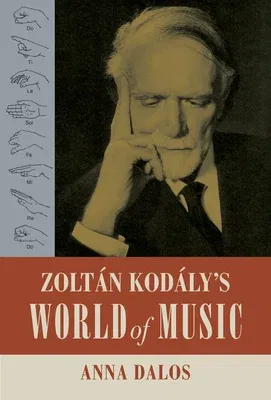Anna Dalos
(Author)Zoltan Kodaly's World of Music: Volume 27Hardcover, 8 September 2020

Qty
1
Turbo
Ships in 2 - 3 days
Only 1 left
Free Delivery
Cash on Delivery
15 Days
Free Returns
Secure Checkout

Part of Series
California Studies in 20th-Century Music
Print Length
298 pages
Language
English
Publisher
University of California Press
Date Published
8 Sep 2020
ISBN-10
0520300041
ISBN-13
9780520300040
Description
Product Details
Author:
Book Format:
Hardcover
Country of Origin:
US
Date Published:
8 September 2020
Dimensions:
23.11 x
14.99 x
2.54 cm
ISBN-10:
0520300041
ISBN-13:
9780520300040
Language:
English
Pages:
298
Publisher:
Weight:
544.31 gm